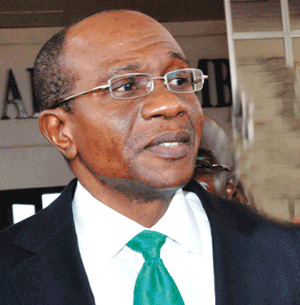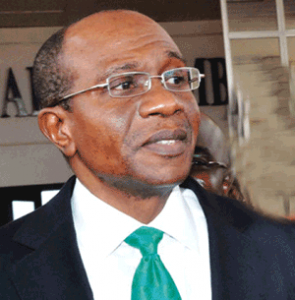The Central Bank of Nigeria (CBN) has released the framework for the operations of Development Finance Institutions (DFIs) that provides a level playing field in the subsector.
Part of the aim is to direct more private capital to participating financial institutions (PFIs).
DFIs are specialised financial institutions with mandate to develop and promote key economic sectors.
The guidelines provide a framework for licensing, regulation and supervision of both Wholesale DFI (WDFI) and Retail DFI (RDFI). DFIs are broadly categorised into WDFI and RDFI.
Rather than compete directly with RDFI at the retail market, WDFI shall mainly provide wholesale financial products (at least 80 per cent of total credit) and facilitate technical assistance to eligible PFIs.
WDFIs require a minimum capital of N100 billion, payable over a maximum period of four ears, out of which a minimum N20 billion shall be paid before grant of AIP; while N10 billion is the minimum capital requirement for RDFIs.
A non-refundable application fee of N100,000 is required for RDFI while WDFIs are to pay N250,000. A non-refundable licensing fee of N500,000 is stipulated for RDFI, and N1 million for WDFIs.
Change of name fee is N50,000 for both WDFIs and RDFIs.
“These requirements may be varied by the CBN from time to time as it deems necessary,” it added.
DFIs are to engage in activities which would provide finance and credit facilities to eligible borrowers either by refinancing loans to medium and small-scale enterprises (MSMEs), issuance of guarantees for loans, and issuance of bonds and notes to fund their operations.
DFIs are expected to invest in government and any other securities approved by the CBN as well as offer technical assistance to borrowers on credit and business development related activities.
However, wholesale DFIs are barred from granting retail loans or getting involved in direct lending, management of pension funds/schemes and project management.
They are not to accept any type of deposits, including savings and time deposits, or take proprietary positions in real estate construction other than for own business.
DFIs will only engage in the extension of credit to borrowers.
The guidelines spelt out the procedure, organisational structure, and criteria to be applied in evaluating applications for loans, credit lines, and guarantees.
There are also standards and criteria for, and timing of, periodic assessments of the creditworthiness of primary finance institutions, PFIs, obligors, or other counterparties, and for the establishment of credit limits.
The Asset/Liability Management (ALM) Policy that highlights DFI’s permissible asset and liabilities sets the standards for managing interest rate and liquidity risks, and delineates the composition, duties, and operational procedures for DFI’s Asset/Liability Management Committee.
The guidelines vest the ultimate responsibility for the management of DFIs on the board of directors of a minimum seven and maximum of 15 members.
The number of non-executive directors should be at least twice the number of the executive directors, subject to the approval of the CBN.
The tenure of executive directors of DFIs should be a fixed term of not more than five years, subject to only one renewal. Non-executive directors should serve for a fixed term of not more than four years, renewable only twice.
“For the avoidance of doubt, the maximum tenure of an executive director shall not exceed a total of 10 years, while a non-executive director shall not serve for periods exceeding 12 years in total.”
Any executive director who has served two five-year terms may equally serve as managing director, if so appointed, for the maximum of two five-year terms, with a combined maximum tenure of 20 years.
DFI’s credit extensions, guarantees or other products must be secured by PFI collateral. PFI-originated eligible loans are to be collateralised to be eligible for DFI financing or refinancing.
Any DFI operating without a valid licence risks closure and prosecution of its promoters, those engaging in activities outside the approved business are liable to a fine of N100,000 for each day of the default, subject to a maximum N2 million. The institution will also forfeit the estimated profit.
DFIs provide financial interventions for micro-, small- and medium-size enterprises (MSMEs) to complement the efforts of banks and other financial institutions (OFIs).
However, they record little success because of limited access to long-term and low-interest funds. Wholesale and retail DFIs aims to bridge the gap and increase access to finance, particularly for MSMEs.
The guidelines also stipulate that a DFI
8.4.1 Shall be required to match its long-term loans to borrowers with liabilities of similar characteristics and duration so as to maintain minimal risk exposure to fluctuations in market interest rates after allowing for the effect of any hedging instruments held by the DFI.
8.4.2 Shall employ appropriate risk management tools to assess and report to the CBN each quarter its market risk exposure.
8.5 Permissible investments and restrictions
a. Debt obligations issued, insured, or guaranteed by the Federal Republic of Nigeria or any agency thereof.
b. Demand deposits, term deposits, or certificates of deposit in licensed banks.
c. Deposits and reserves held with the CBN.
d. Other investments specifically permitted by the CBN.
8.5.2 At no time, except in the first two years of DFI’s operation, shall permissible investments exceed 40 per cent of DFI’s total assets, unless otherwise stipulated by the CBN in considering the DFI’s liquidity needs and its borrowers’ demands for loanable funds.
8.5.3 At no time shall a DFI use financial derivatives except as hedging instruments.
8.6 Foreign currency borrowing
8.6.1 The aggregate foreign currency borrowing of a DFI shall not exceed 75 per cent of its shareholders’ funds unimpaired by losses or as may be specified by the CBN from time to time.
8.6.2 DFIs shall borrow and lend in the same currency (natural hedging) to avoid currency mismatch associated with foreign currency risk.
8.6.3 The basis of the interest rate for borrowing shall be the same as that of lending; that is, there shall be no mismatch in floating and fixed interest rates, to mitigate basis risk associated with foreign borrowing interest rate risk.
8.6.4 With respect to Eurobonds, any clause of early redemption shall be at the instance of the issuer and approval obtained from the CBN in this regard, even if the bond does not qualify as tier 2 capital.
8.7 Other known losses (OKL)
All assets for which the net realisable value has fallen below the historical cost shall have the difference in value recognised and charged to the income account as “other known losses”.
8.8 Maintenance of statutory reserves
Every DFI shall maintain a reserve fund and shall out of its net profit after taxation and before any dividend is declared, transfer to the statutory reserves as follows:
a. Where the reserve fund is less than the paid-up share capital, a minimum of 30.0 per cent of the net profits; or
b. Where the reserve fund is equal to or in excess of the paid-up share capital, a minimum of 15.0 per cent of net profit;
c. No transfer to the reserve fund shall be made until all identifiable losses have been made good.
d. A WDFI shall plough back all its profit after tax to reserve unless it has met the regulatory minimum capital of N100 billion or such other amount as the CBN may specify from time to time.
The guidelines are arranged in 12 sections, beginning with definitions and objectives of DFIs, followed by the powers and duties of the CBN with respect to the operations of DFIs.
The third and fourth sections highlight the permissible and non-permissible activities, and the licensing procedure and requirements, respectively.
The fifth section deals with corporate governance requirements, while section six focuses on sources of funds for DFIs.
Sections seven and eight provide for rendition of statutory returns and prudential requirements, respectively.














